homebrew
Latest

Google's latest do-it-yourself AI kits include everything you need
Google's AIY kits have been helpful for do-it-yourselfers who want to explore AI concepts like computer vision, but they weren't really meant for newcomers when you had to supply your own Raspberry Pi and other must-haves. It'll be much easier to get started from now on: Google has released updated AIY Vision and AIY Voice kits that include what you need to get started. Both include a Raspberry Pi Zero WH board and a pre-provisioned SD card, while the Vision Kit also throws in a Raspberry Pi Camera v2. You won't be going on extra shopping trips (or downloading software) just to get the ball rolling.
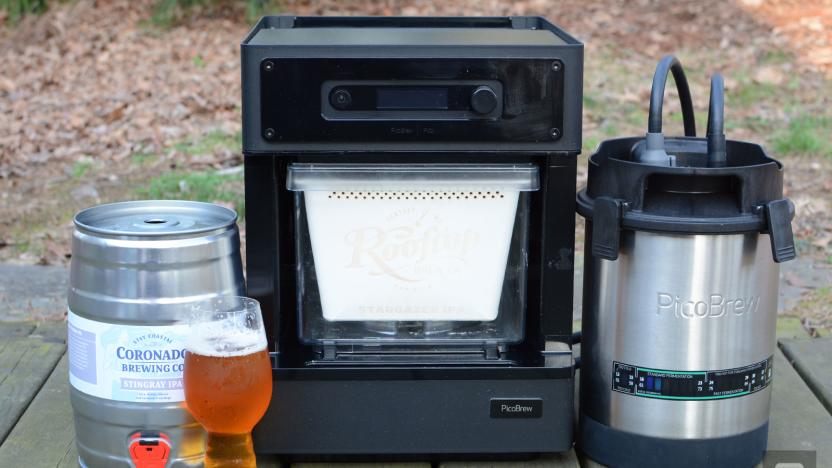
Pico C review: Making homebrew beer easy for beginners
PicoBrew has made a name for itself with a range of beer-making appliances that promise a "set it and forget it" experience. The company covers the gamut of brewing levels, from the Zymatic (now Z Series) for pros to the Pico Pro and Pico C for intermediate folks and beginners, respectively. While PicoBrew's entire product line offers WiFi connectivity for remote monitoring of the process, its PicoPaks make the whole process even easier by bundling all the ingredients into a simple, self-contained pod. However, as I found with the $499 Pico C, that simplicity has one big trade-off.
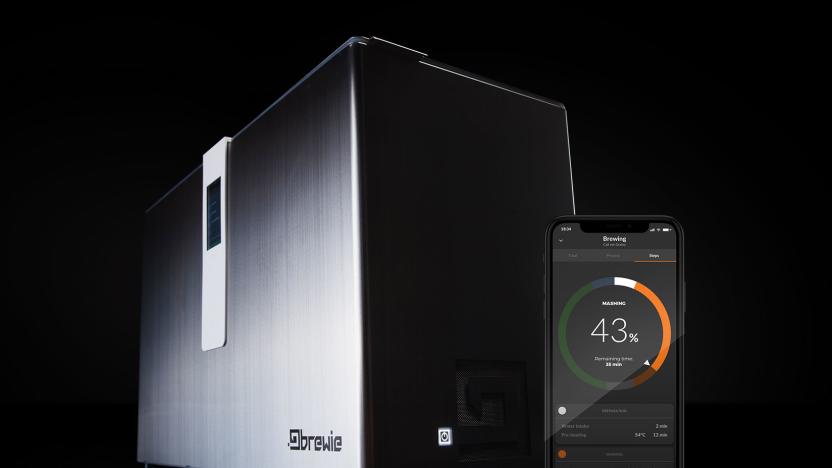
Brewie is back with version 2.0 of its automated homebrew machine
Over the last few years, we've seen a number of automated homebrew machines promise easy beer making for homebrewers of all skill levels. Some of them offer the freedom of using loose grains and hops, while others rely on pre-packaged ingredients straight from the company. Brewie falls into the former category and the company is back with a follow-up to the machine it first debuted back in 2014. The new device, dubbed the Brewie+, has been retooled to make the unit faster and the brewing process more efficient.
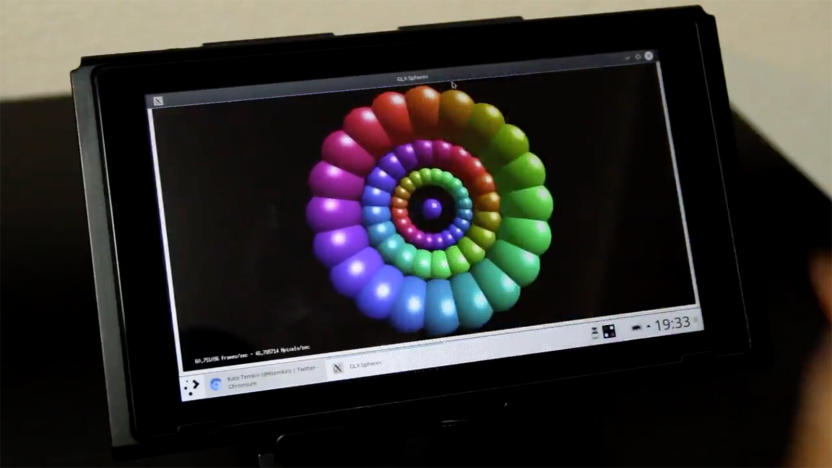
Modders turn Nintendo Switch into a full-fledged Linux tablet
For all of its Nintendo customizations, the Switch is ultimately a tablet running a garden variety NVIDIA Tegra processor -- and that means it can potentially handle the same software as other mobile devices. To prove that point, the fail0verflow team has shown a Switch running an honest-to-goodness Linux distribution. The touchscreen, networking and accelerated 3D graphics are all functioning, as evidenced by the modders tweeting from the Switch and running a benchmark. You're not about to run Steam games on it (many Linux apps aren't built for ARM-based chips), but you could theoretically use the Switch as a basic computer.
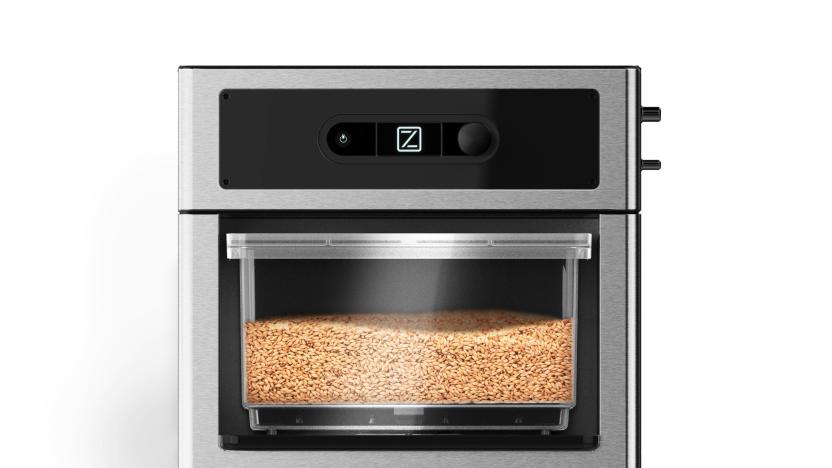
PicoBrew Z series is a modular all-in-one setup for serious homebrewers
After introducing Keurig-like pods for brewing beer at home, PicoBrew is back with a more traditional all-grain setup. The new Z Series allows brewers to use their own loose grains and hops instead of the company's own pre-packed ingredients. There are also four models, from 2.5 gallons up to 10 gallons -- each one increases brew capacity by 2.5 gallons. Like the Zymatic these units replace, PicoBrew designed these devices for pros, especially since a 5, 7.5 or 10 gallon batch would be enough to put on tap in a tasting room -- for pilot batches, at least. However, experienced homebrewers can also use their expertise for the Z Series.

The Nintendo Switch's GPU is key to installing unofficial games
Game console manufacturers don't particularly like hackers, but Nintendo's relationship with them has always been particularly tenuous. At a recent hacking conference in Germany a team presented their efforts at getting homebrew games on Nintendo's latest console, the Switch. As spotted by Wololo, bypassing typical safeguards apparently comes down to Nintendo's use of an off-the-shelf NVIDIA Tegra chip, and the backdoor that the silicon-maker left for itself.

Mod gives Google's Home Mini speaker its 'missing' line-out jack
For many, Google's Home Mini speaker has one key disadvantage over Amazon's Echo Dot: there's no line-out jack. If you want more powerful sound without buying a higher-priced model, you have to stream to a Chromecast-equipped speaker system. However, that didn't deter SnekTek -- the site has added an aux audio port to the Mini through a clever homebrew mod. To say this required some delicate surgery would be an understatement, mind you. The procedure involved boiling the adhesive off the bottom, finding the one space where a headphone port would fit, and carving out a hole. As with the iPhone 7 headphone mod, the product clearly wasn't designed for this -- there won't be any doubt that you voided your warranty once you're done.

Nintendo Switch homebrew is possible, but there's a catch
Resourceful hackers have long been rejuvenating Nintendo's consoles past their sell-by dates. Armed with in-game exploits, the homebrew community persistently overcame updates to release unofficial emulators and apps for the Wii, Wii U, and 3DS. But, is Nintendo's latest console as hackable as its predecessors? A bunch of enthusiasts have been tinkering away for months to solve that riddle, and they've now made a significant breakthrough. As the Wololo homebrew community notes, an update to the Pegaswitch toolkit allows for the Switch to be prepped for homebrew on firmware 3.0.0. using a copy of Pokken Tournament DX.

USB-powered Sega Nomad gives you near-endless game time
Sega's Genesis Nomad was always something of a compromise (it was running 16-bit console games on mid-1990s handheld tech), but the battery life was a particularly sore point: it took six AA batteries just to get 3 hours of play time. Wouldn't it be nice if you could use modern hardware to play without constant (and sometimes expensive) battery swaps? The Sega Holic (aka Catch22 on NeoGAF) thinks so. He just teased a homebrew Nomad modification that lets the portable system run on USB power. You could play for hours on end with the same external battery you use for your phone, or rely on your laptop's power to keep playing in between meetings.

Picobrew's next goal: A safe and affordable DIY distillery
Picobrew has a new, cheaper countertop beer brewing system. That you already knew. But the company is now dipping its toes into distilling. The Picostill is an add on for the Pico Model C that turns that weird custom designed keg into a countertop distillery. Specifically it's a reflux still that uses vacuum distillation, which doesn't look as cool as a pot or column still, but makes far more efficient use of the space.
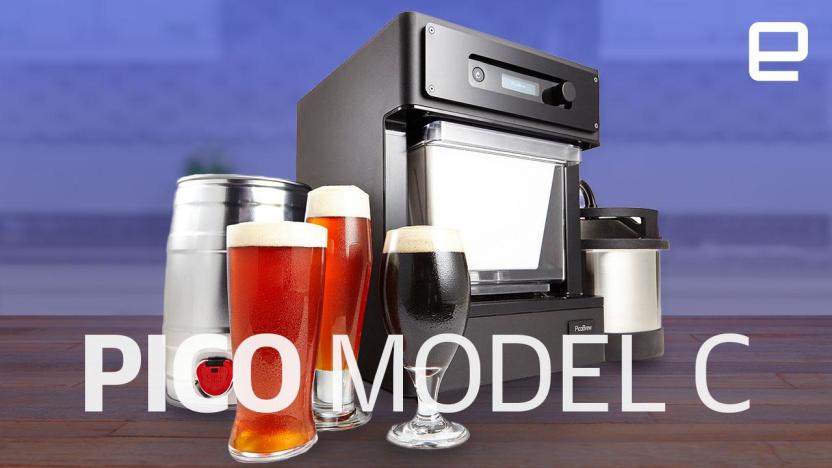
PicoBrew tries to make countertop beer brewing affordable
Brewing your own beer is surprisingly easy and cheap. But, it can seem intimidating. Plus, some of the equipment takes up a lot of space if you really start to embrace the hobby. Companies like Picobrew have been trying to simplify the process to make it more appealing to newcomers and those with limited space. The Pico Model C is the latest in a line of "countertop" brewing machines. It looks more like a coffee machine than anything else. In fact, it looks a lot like the company's previous machine -- the Pico -- except the stainless-steel body has been replaced with a black powder-coated finish.

After Math: Baby come back
This was a week of many happy returns. Stanford students brought back 5,000 year old Chinese beer, Prince's catalog has reappeared on streaming services not owned by Jay Z and a pair of classic Hot Wheels cars are coming out of retirement to make their Rocket League debut. Numbers, because how else will we know how long you've been gone?

An entire 'Pokémon' game is playable inside 'Minecraft'
When you think of Minecraft add-ons, you probably think of mini games or the occasional clever machine -- fun, but you'll likely be back to the main game before long. Well, you might want to clear your schedule with this one. Phoenix SC has released Pokémon Cobalt and Amethyst, a Minecraft add-on that recreates the adventuring and creature battles of its namesake game with uncanny attention to detail. There's a brand new storyline, 136 (!) new Pokémon and many of the experiences you know, including a blocky Pokédex. Reportedly, it could take you longer to beat than the official Pokémon games -- Phoenix SC is estimating that it'll take 60 to 80 hours to finish.

Arduino is making an Internet of Things kit with your help
Arduino boards can certainly be used to create homebrew connected devices, but that doesn't mean it's easy. What if you're a rookie who has yet to master programming or wiring? That's where Arduino's new, crowdfunded ESLOV kit might save the day. All you have to do to create a basic Internet of Things device is snap in some plug-and-play modules, connect your creation to your PC and draw connections between those modules in an editor. You only have to dive into serious programming if you have specific needs -- there's ready-made code for common devices like air quality sensors, baby monitors and remote-controlled thermostats.

Whirlpool's Vessi is a homebrew fermenter that pours a pint
There's no denying the popularity of homebrewing beer among DIYers, and we've seen a number of devices that aim to make that process easier. The latest small appliance comes from a familiar name: Whirlpool. With the Vessi fermenter and tap system, the company says it is reducing the time it takes to make beer from a month down to seven days. Of course, that fermentation time depends on what style you're brewing, but for a 3.3% "light blonde ale," Whirlpool says that 7-day turnaround is possible.

Nintendo pulls a 3DS game to fight another homebrew exploit
Nintendo's cat-and-mouse game with homebrew exploits isn't over yet. The gaming giant recently pulled Terry Cavanagh's retro platformer VVVVVV from the 3DS eShop after Shiny Quagsire discovered a way to use the game to run your own code. It's not a direct method, as you need another exploit for this to work (such as in the browser or another game), but that apparently doesn't matter to Nintendo.

Arduino clone is as small as an AA battery
What do you do if even the smallest Arduino boards (or their clones) are too big for your homebrew project? If you're Johan Kanflo, you find a way to make them even smaller. His AAduino project turns the already miniscule Tiny328 Arduino clone into an even smaller computing device that's about as big as an AA battery. Through creative wiring, it even fits inside a typical battery holder and draws power from the batteries in the remaining slots. He had to underclock the processor to extend to the battery life, but it's otherwise as capable as its normal counterparts.

Raspberry Pi 3 has a 64-bit processor and built-in WiFi
It's hard to believe, but it's been four years since the Raspberry Pi Foundation gave the DIY computing scene a huge kick in the right direction with the launch of the Model B. To celebrate the milestone and 8 million units sold, the charity is hosting another Big Birthday Bash, but more importantly, there's also some new hardware for tinkerers to get their hands on. Introducing the Raspberry Pi 3: the Foundation's first 64-bit computing board that also comes with WiFi and Bluetooth built in for the same $35/£30 price.

Particle's Electron board lets anyone make 3G internet devices
As sweet as it might be to dream of making your own Internet of Things device, there's one big problem: keeping it online at all times. How do you connect that smart sensor in your backyard when it's nowhere near WiFi? Particle (aka Spark) thinks it can help. It just started shipping the Electron, its cellular-equipped tinkerer's board, to its Kickstarter backers. The tiny device not only has the basic components you need to make IoT gadgets, but a modem (a 2G Electron is $39, 3G is $59) and a simplified, if slightly costly, data plan. If you're willing to spend $3 per month for 1MB and 99 cents for every megabyte afterwards, your project gets online in 100 countries around the world -- not trivial, but just fine if you're building a meter or anything else that transmits only a tiny amount of data.

Homemade laser lightsaber is as risky as it looks
It's clear that there are a lot of Star Wars fans these days, but one of them just took that adoration to a decidedly geeky new level. Styropyro (he of laser shotgun fame) has built a lightsaber using a heavily upgraded 7W blue laser -- it's several times more powerful than what's needed to blind someone. While the beam isn't contained like the "real" thing, it's strong enough that it can burn through wire and other household objects. You probably don't want to build this at home unless you're exceptionally careful, then.






